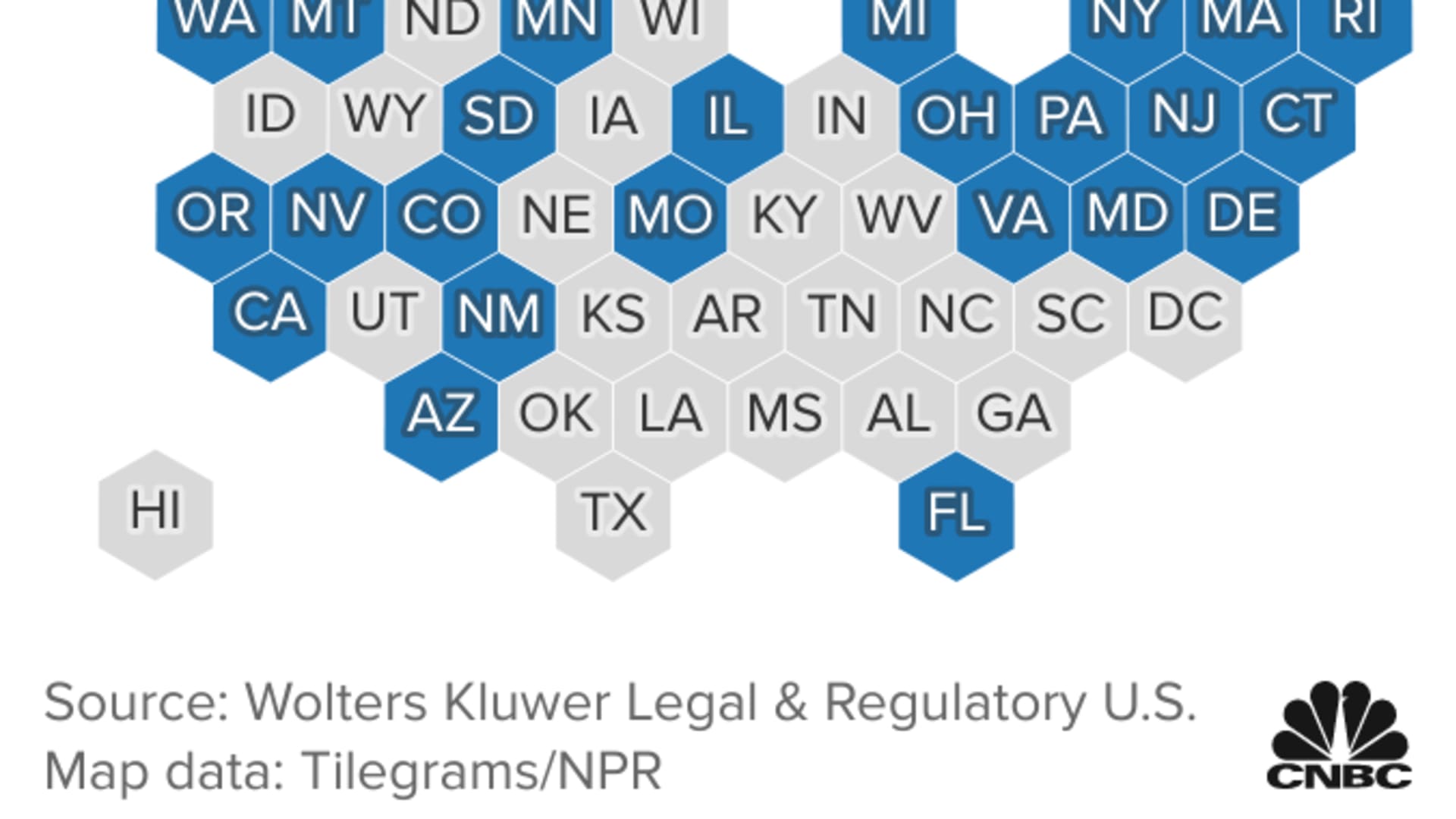
Just months after a federal $15 minimum wage failed to take shape, Californians may get the chance to vote on even higher minimum hourly pay.
A measure to raise the state's minimum wage to $18 began to collect signatures in February. If the campaign, called the Living Wage Act of 2022, gets 700,000 signatures, it will be on California's November ballot.
"The purchasing power of the minimum wage declines over time," said Joe Sanberg, an entrepreneur and sponsor of the legislation. "That means that we have to keep fighting for an increased minimum wage to make sure that working people can afford life's basic needs."
More from Invest in You:
Small business owners are optimistic, but still face challenges
Inflation is at its highest in 40 years. How raising interest rates could help
This company found a cure for employee burnout: a four-day workweek
If signed into law, the measure would gradually raise the minimum wage in California to $18 from $15 by 2025. That means that it would increase to $16 in 2023 and $17 in 2024. This would apply only to businesses with more than 25 employees – those with fewer than 25 employees would reach $17 an hour in 2025.
"The reality in America is that most people who are working full time live on a knife's edge of financial ruin," said Sanberg, adding that a higher minimum wage would help support people of color and essential workers.
Hourly workers will get a boost
Money Report
If the measure succeeds, it will give some 5.5 million people in California a raise of more than $6,000 per year. California's minimum wage was officially increased to $15 per hour at the beginning of 2022, though some parts of the state have set their own minimum wages higher.
The hike would also apply to tipped workers and continue to be adjusted to keep pace with the cost of living past 2025.
Get a weekly recap of the latest San Francisco Bay Area housing news. >Sign up for NBC Bay Area’s Housing Deconstructed newsletter.
Even though many businesses have raised wages to attract workers during the so-called Great Resignation, it's important to have policies in place that sets a floor for pay, said Saru Jayaraman, president of advocacy group One Fair Wage.
"It's essential that we raise wages right now; it's a historic moment where workers are refusing to work for $15 an hour," she said. "It's not enough anymore."
In addition, it's important to consistently raise compensation because workers are being hit with the highest inflation seen in 40 years. While that has led to wage hikes, having a law in place ensures workers that businesses won't cut their pay later if inflation cools off, Jayaraman said.
The big picture
At the start of the year, 26 states, including California, raised their minimum wages to $15 an hour.
The Biden administration initially included a $15 federal minimum wage in Covid-relief legislation but it was dropped. President Joe Biden was, however, able to raise the minimum wage to $15 for all federal contractors, a pay bump that went into effect Jan. 30.
Of course, not all are in favor of raising the minimum wage. Democrats removed raising the federal minimum wage from legislation last year after an amendment from Sen. Joni Ernst, a Republican from Iowa. Ernst argued that raising wages during the Covid pandemic would hurt small businesses that were all ready suffering.
In addition, hiking pay could potentially lead to job losses. A 2021 report from the Congressional Budget Office found that raising the minimum wage to $15 an hour by 2025 could lead to 1.4 million job losses. However, it would also lift 900,000 from poverty, according to the report.

The Raise the Wage Act, which would gradually increase the federal minimum wage to $15 an hour by 2025, has passed in the House but remains held up in the Senate.
The federal minimum wage, currently $7.25, has not been hiked since 2009. However, even $15 is not enough for many workers to afford the cost of living in the U.S., according to a recent CNBC analysis of cost-of-living data assembled by researchers at the Massachusetts Institute of Technology.
That's prompted advocates for higher wages to organize at the state level, said Jayaraman. One Fair Wage is looking to raise the minimum wage in 25 U.S. states by 2026, she said. Most Americans favor higher wages, and many states have been able to pass their own legislation to boost worker pay.
"Given that we're not seeing the movement in Congress, we took it upon ourselves," she said. "You have to take advantage of the moment."
SIGN UP: Money 101 is an 8-week learning course to financial freedom, delivered weekly to your inbox. For the Spanish version Dinero 101, click here.
CHECK OUT: The 'old convention' for saving in retirement won't work anymore, expert says: Here's how to shift your strategy with Acorns+CNBC
Disclosure: NBCUniversal and Comcast Ventures are investors in Acorns.






